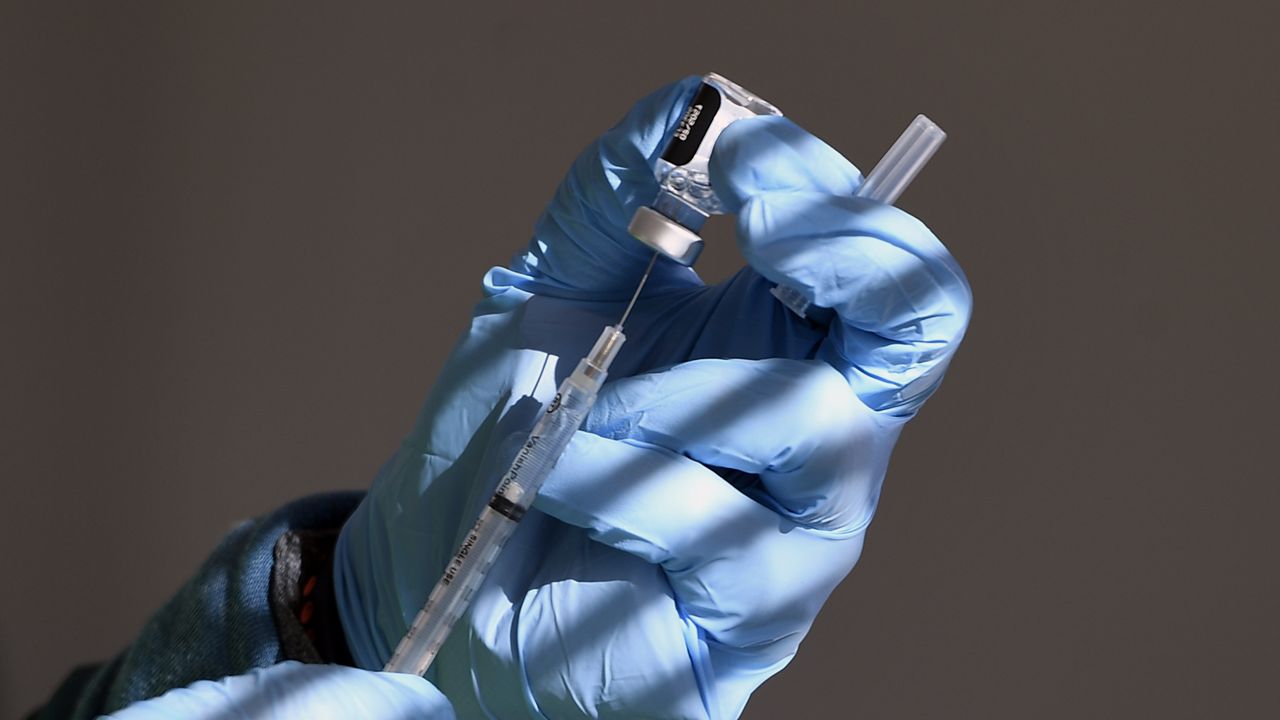The U.S. Centers for Disease Control released a new study Friday that examined the risks of remaining unvaccinated against COVID-19 as the delta variant surges across the country, with CDC Director Dr. Rochelle Walensky saying the report “offers further evidence of the power of vaccination.”
The data, which was released as part of the CDC’s weekly Morbidity and Mortality report, studied 600,000 COVID cases across 13 states where vaccination status was available for the patients. The study compared two separate time periods: April 4-June 19, when the delta variant accounted for less than 50% of the reported COVID-19 cases nationwide, and June 20-July 17, when the delta variant became the predominant strain in the U.S.
“Looking at cases over the past two months, when the delta variant was the predominant variant circulating in this country, those who were unvaccinated were about 4½ times more likely to get COVID-19, over 10 times more likely to be hospitalized and 11 times more likely to die from it,” Walensky said during a Friday press briefing.
From April 4-June 19, fully vaccinated individuals made up 5% of cases, 7% of hospitalizations and 8% of deaths in the surveyed areas; those percentages increased to 18%, 14% and 16%, respectively, during June 20-July 17.
While the incidence rate of COVID-19 infections among vaccinated individuals increased “more than expected” after June 20, those findings can likely be attributed to a decreased immune response to the COVID-19 vaccine in individuals who may have gotten their first dose in late 2020 or early 2021.
Still, the amount of hospitalizations, deaths and cases among the vaccinated population remained significantly lower than those of the unvaccinated across both time periods.
From April 4-June 19, over 5,100 unvaccinated patients died of COVID-19, compared to 428 fully vaccinated individuals. From June 20–July 17, unvaccinated cases led to 1,006 deaths, while only 188 deaths of fully vaccinated individuals were reported.
The report suggests a “continued strong protection against COVID-19-associated hospitalization and death,” as the data is “consistent with recent studies reporting decreased VE against confirmed infection but not hospitalization or death, during a period of Delta variant predominance and potential waning of vaccine-induced population immunity.”
The study does have several serious limitations, including that the 13 states studied account for only a quarter of the total U.S. population, and therefore “might not be generalizable.” But government doctors have long maintained that the vaccines are effective in preventing serious illness and death due to COVID-19.
“As the president reiterated yesterday and as we have shown study after study, vaccination works,” Walensky added Friday. “CDC will continue to do all we can do to increase vaccination rates across the country by working with local communities and trusted messengers and providing vaccine consults to make sure that people have the information they need to make an informed decision about vaccination.”
While the report is largely good news for the vaccinated population, it will do little to clear up confusion surrounding booster shots against COVID-19.
Last month, President Joe Biden announced that the government would, pending FDA and CDC approval, begin administering booster shots for mRNA vaccines the week of Sept. 20 to combat waning protections in individuals who got their second shot around eight months prior. Those plans might be temporarily stalled, as federal officials will likely only give Pfizer approval for a third dose by that date. Moderna’s booster shot will likely not make the September deadline.
Officials hope a third shot may help better protect against the delta variant and so-called "breakthrough infections" in vaccinated individuals, which tend to be far less severe than cases in unvaccinated persons.
The delta variant, which is more transmissible than the original strain of SARS-Cov-2, has grown exponentially across the country in recent weeks. In June, the delta variant made up about 13% of isolates across the country; it now makes up around 99% of isolates nationwide, NIH Director Dr. Anthony Fauci said Friday.
The report from the CDC comes on the heels of a new, sweeping vaccine mandate issued by Biden on Thursday. The president's six-pronged effort requires, in part, that all businesses with 100-plus employees either get their workforce vaccinated or require weekly COVID-19 tests.
White House COVID-19 Response Coordinator Jeff Zients said the administration anticipates the rule, which is being drafted by the Department of Labor and the Occupational Safety and Health Administration (OSHA), to be handed down in the coming weeks.
“If a workplace refuses to follow the standard, the OSHA fines can be quite significant,” Zients warned Friday. “Enforcement actions can include fines up to $13,600 per violation.”
The mandate is part of the administration’s all-out push to get Americans vaccinated against COVID-19 amid a resurgence in cases nationwide. Currently, around 177 million Americans are fully vaccinated against COVID-19, or around 53% of the total population.



